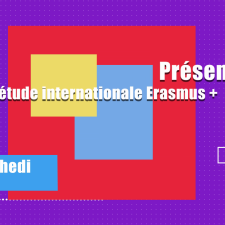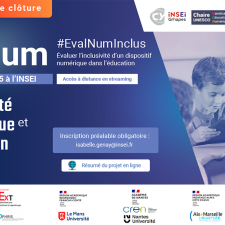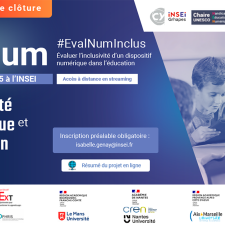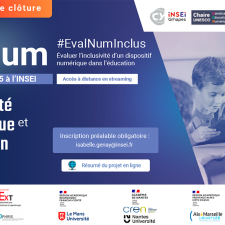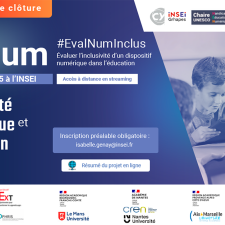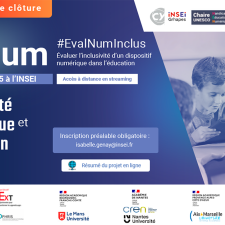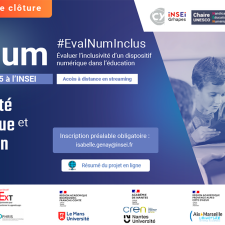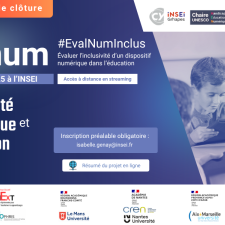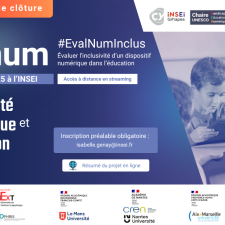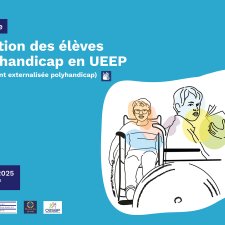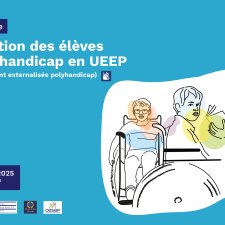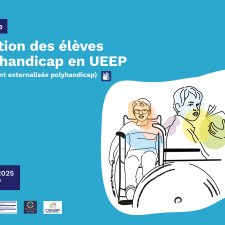Notice
The role of knowledge in the construction of education (...) - Mangez
- document 1 document 2 document 3
- niveau 1 niveau 2 niveau 3
Descriptif
The role of knowledge in the construction of education policy across Europe
In Europe, information and expertise are now both more widely distributed and more readily accessible than ever before. At the same time, expectations of transparency and public accountability have increased. In many ways, knowledge is coming to play a new role in policy: we can now distinguish 'post-bureaucratic' from conventional 'bureaucratic' regimes and show that that each presupposes a specific kind of knowledge and a specific way of using it. While bureaucratic modes of governance require ‘established’ bodies of knowledge to be translated into ‘vertical’ regulations; post-bureaucratic modes of governance consist rather in attempting to turn actors’ autonomy and reflexivity into a means of governing. The way Europe relates to such new modes of governance is complex, because Europe itself is diverse and comprises different spaces where tensions between bureaucracy and post-bureaucracy play out in various ways. This new context challenges both research and policy-making, requiring much greater reflection on the nature of knowledge and its mobilization in policy. These problems were the central concern of the European project KNOWandPOL, and will be elaborated and developed during the presentation.
Intervention / Responsable scientifique
Thème
Documentation
A propos de ce séminaire ...
Dans la même collection
-
Ce que la caméra fait aux terrains - Buob
BuobBaptisteLes tentatives sont nombreuses pour qualifier ce qui fait la singularité d’une enquête ethnologique menée la caméra au poing. Mais le simple fait de filmer définit-il en soi une méthode ? La
-
Teachers’ learning and teachers’ understanding of learning - Evans
EvansLindaTeachers’ learning and teachers’ understanding of learning: issues relating to research and policyReflecting the focus of my own research, this paper relates to teachers’ professional learning or
-
Théories, méthodes et données diverses : richesse et difficulté des Learning Sciences - Lund
LundKristineThéories, méthodes et données diverses : richesse et difficulté des Learning Sciences. Les recherches en éducation sont inspirées d’une variété d’épistémologies et emploient des méthodes
-
Les sciences de l’apprendre sont (aussi) des sciences du faire apprendre - Sensevy
SensevyGérardLes sciences de l’apprendre sont (aussi) des sciences du faire apprendre. Les sciences de l’apprendre sont (aussi) des sciences de l’enseigner. Quelques remarques sur les relations entre l
-
Le développement des régulations épistémiques ... - Baker
BakerMichael J.Le développement des régulations épistémiques et socio-affectives dans les groupes d’app Toutes les démarches de recherche dans les Sciences de l’Apprentissage accordent une place privilégiée à l
-
Les méthodes de recherche face aux politiques (...) - Evelay
DevelayMichelLes méthodes de recherche face aux politiques publiques en éducation Les méthodes de recherche en sciences de l'éducation sont plurielles. Cet état de fait s'explique par les tensions qui traversent
-
Developing a plurality of methods of research • Synthesis and methods (...) - Gough
GoughDavidDeveloping a plurality of methods of research synthesis and methods of research use to inform policy and practice There is a richness and plurality of quantitative and qualitative research in
-
Éducation et démocratie • Retour sur le Nouveau dictionnaire pédagogique ... - Savoie
SavoiePhilippeRetour sur le Nouveau dictionnaire pédagogique de Ferdinand Buisson (1911) Conçu comme un guide pour les instituteurs, le nouveauDictionnaire de Pédagogie se place aussi, au nom de la démocratie, dans
-
Les méthodologies d’analyse des enregistrements vidéo (...) - Veillard
VeillardLaurentDans cette intervention, on s’appuiera sur un travail collectif réflexif, engagé depuis 6 ans : le projet ViSA (Vidéos de situations d’enseignement et d’apprentissage). Ce programme a pour objectif
-
Cognition in social interaction • a multi-layered approach - Ludvigsen
LudvigsenStenIn this talk learning is viewed as multi-layered phenomena. A socio-genetic approach is used in order to understand human activity, and to show how categories are a fundamental part of learning in a
-
De la difficulté de la recherche de causes en éducation et de la mobilisation de ses résultats - Me…
MeuretDenisDe la difficulté de la recherche de causes en éducation et de la mobilisation de ses résultats: Apports et limites de l'économie de l'éducation. La recherche sur l'efficacité en éducation a fait des
Sur le même thème
-
Présentation du dossier journée Erasmus
Présentation du dossier en vidéo
-
- Le numérique au quotidien : pratiques et enjeux dans une classe soutenue par une ULIS-collège
AssudeTeresaFeuilladieuSylvianeBussezAlexandraMartinPerrineLe numérique au quotidien : pratiques et enjeux dans une classe soutenue par une ULIS-collège
-
Évaluer des usages du numérique à l'école primaire : un regard didactique sur des pratiques ordinai…
DupréFrédéricÉvaluer des usages du numérique à l'école primaire : un regard didactique sur des pratiques ordinaires
-
Usage du numérique dans une dynamique inclusive : impact d'une pratique coopérative sur l'accès aux…
Louge DupratMagalieUsage du numérique dans une dynamique inclusive : impact d'une pratique coopérative sur l'accès aux savoir.
-
Enjeux, principes et outils de l'observation in situ des usages pédagogiques inclusifs du numérique
BenoitHervéEnjeux, principes et outils de l'observation in situ des usages pédagogiques inclusifs du numérique
-
Le projet GTnum à l'échelle d'un territoire académique : témoignage de Julien Roche
RocheJulienLe projet GTnum à l'échelle d'un territoire académique : témoignage de Julien Roche
-
Un questionnaire académique pour donner à voir les pratiques numériques inclusives
DupréFrédéricBenoitHervéUn questionnaire académique pour donner à voir les pratiques numériques inclusives
-
Évaluer l'inclusivité d'un dispositif numérique dans l'éducation (GTnum) : état de l'art
Petry-GenayIsabelleBenoitHervéÉvaluer l'inclusivité d'un dispositif numérique dans l'éducation (GTnum) : état de l'art. Hervé Benoit et Isabelle Petry Genay, INSEI.
-
Ouverture de la journée GTnum#EvalNumInclus 2025
BenoitHervé"Évaluer l'inclusivité d'un dispositif numérique dans l'éducation"
-
Table ronde 2 | Scolarisation des élèves avec polyhandicap en UEEP (unité d'enseignement externalis…
AtlanEstherLeclercAurélieLewi-DumontNathalieTréfféCarolineAndréCécileZornSabineMise en commun des échanges qui se sont déroulés pendant les ateliers
-
Retour d'expériences sur une UEEP collège
Gervet-MouchainNoémieBuotKarineDeux enseignantes de l'IME de Lormaye (28), évoquent leur travail au sein de cet institut.
-
Retour d'expériences sur une UEEP primaire
CressonClarisseFétiveauCéciliaDeux enseignantes spécialisées évoquent leur travail au sein d'une Unité Externalisée Polyhandicap (UEP) de Seine-Saint-Denis (93)














